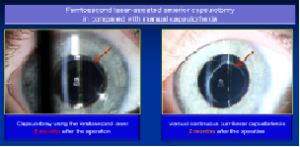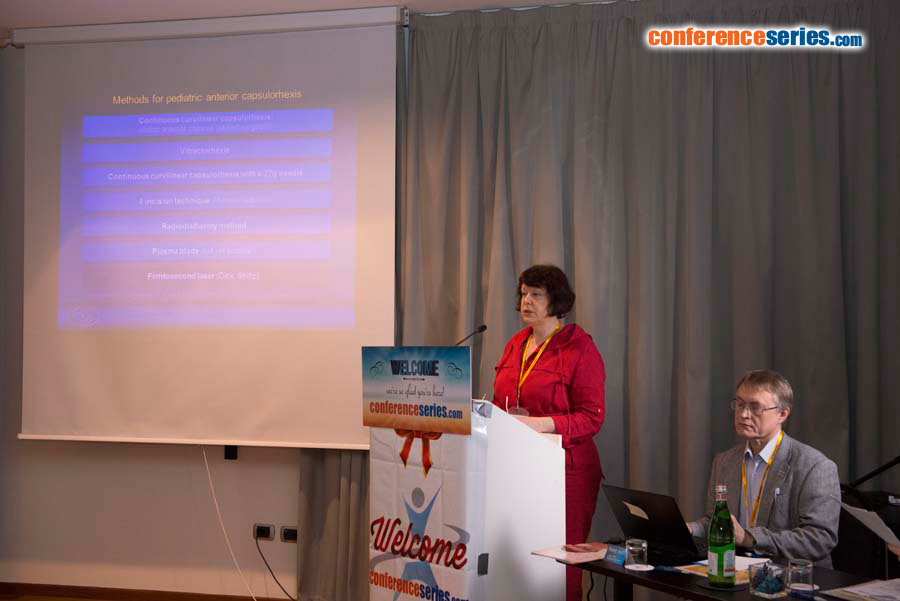
Irina Trifanenkova
MNTK, Eye Microsurgery, Russia
Title: Femtolaser anterior and posterior capsulotomies during pediatric cataract surgery
Biography
Biography: Irina Trifanenkova
Abstract
Congenital cataracts are the most common cause of treatable childhood blindness and low vision. Cataract surgery in children has improved dramatically over recent decades, mainly because of modern surgical techniques; one of the latest is femtosecond laser. We describe our experience of laser system Femto LDV Z8 (Ziemer Ophthalmic Systems, Switzerland) using for femtosecond laser assisted anterior and posterior capsulotomies in children. The technique of femtosecond laserassisted capsulotomy has been performed in 19 children (23 eyes) (ages from 3 months to 10 years): in 8 patients (12 eyes) (10 eyes with swelling cataract, 2 eyes with anterior capsule fibrosis) for anterior capsulotomy only; in 11 patients (11 eyes) for both anterior and posterior capsulotomies because of anterior or posterior capsule fibrosis, or persistent hyperplastic primary vitreous. All surgeries were performed under general anesthesia. After docking the integrated OCT-system imaged the ocular structures, and treatment parameters were determined. Anterior capsulotomy was made by femtolaser automatically. In patients with posterior capsule fibrosis both anterior and posterior capsulotomies were performed using the femtolaser system. After posterior capsule surface was identified with integrated OCT, posterior capsulotomy parameters were determined. A mean diameter of the automatically performed posterior capsulotomy was 3.0-3.5 mm. In result, the creation of precise, perfectly centered, round both anterior and posterior capsulotomies were achieved in all cases. No complications were observed within follow-up. Desirable functional results were reached in all cases. Thus, we can distinguish the advantages of femtosecond laserassisted cataract surgery in children: reproducibility of values of the laser parameters under OCT-control; decrease of surgery time; reduction of intraocular manipulations; and risk of intra- and postoperative complications; creation of precise, perfectly centered, round anterior and posterior capsulotomies. In conclusion, femtosecond laser-assisted anterior and posterior capsulotomies are effective and safe techniques that can enhance the quality of pediatric cataract surgery in children.




